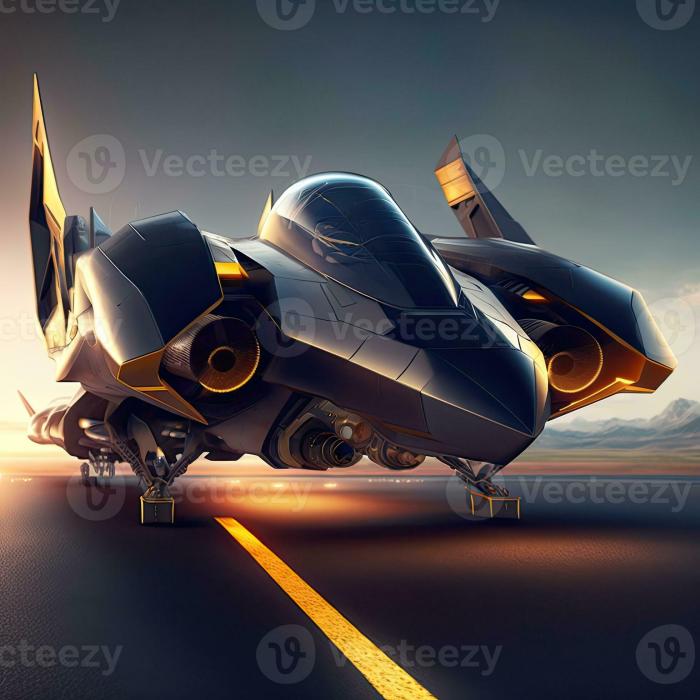Sci-fi roleplaying games invite players into immersive universes where imagination knows no bounds. From exploring distant galaxies to battling alien species, these games allow individuals to become heroes of their own epic narratives. As they draw inspiration from rich sci-fi literature and media, they have developed a unique identity that keeps evolving with each passing decade, reflecting society’s hopes and fears about the future.
In this exploration, we will delve into the defining characteristics of sci-fi roleplaying games, examining how they have transformed over time. We’ll also highlight popular titles that have left a significant mark on the genre, comparing their mechanics, settings, and the incredible stories they tell, while considering how other gaming genres intersect with these sci-fi adventures.
Overview of Sci-Fi Roleplaying Games
Sci-fi roleplaying games (RPGs) transport players into futuristic worlds filled with advanced technology, extraterrestrial beings, and complex storylines. These games allow players to immerse themselves in rich narratives, often influenced by the vastness of space and the myriad of possibilities it presents. The allure of sci-fi RPGs lies in their combination of imagination, strategy, and collaboration, offering a unique playground for creativity and exploration.The evolution of sci-fi roleplaying games can be traced from the early tabletop games of the 1970s to the expansive digital universes of today.
Initially, titles like “Metamorphosis Alpha” and “Star Frontiers” laid the groundwork for a genre that would grow exponentially. As technology advanced, so did the storytelling capabilities of these games, leading to the emergence of iconic systems such as “Shadowrun” in the 1980s, which blended cyberpunk elements with traditional RPG mechanics. The 1990s and 2000s saw the rise of video game adaptations, such as “Mass Effect” and “Star Wars: Knights of the Old Republic,” which further broadened the reach and popularity of the genre.
Influence of Sci-Fi Literature and Media
The impact of sci-fi literature and media on the development of roleplaying games is profound and multifaceted. Influential authors and filmmakers have shaped the themes, aesthetics, and narrative structures that are prevalent in these games. This section Artikels key sources of inspiration and their contributions to the RPG landscape.The synergy between sci-fi literature and RPGs can be illustrated through the following points:
- Classic Literature: Works by authors like Isaac Asimov and Arthur C. Clarke have introduced concepts such as advanced robotics and space exploration, which have become mainstays in many sci-fi RPG narratives.
- Film and Television: Iconic franchises like “Star Wars” and “Star Trek” have set a standard for world-building and character development, influencing the design of game mechanics and settings.
- Graphic Novels and Comics: The visual storytelling in graphic novels, such as “Saga,” provides a rich backdrop for RPG storytelling, allowing players to visualize alien worlds and cultures.
- Video Games: Earlier video games like “Elite” and “Wing Commander” introduced players to space combat and exploration, paving the way for later RPGs that incorporated similar elements into their gameplay.
The legacy of these influences is evident in the creators’ ability to draw from established lore, ensuring that players experience familiar yet innovative gameplay. This intertextuality not only enriches the gaming experience but also encourages players to engage with the broader sci-fi culture that continues to evolve.
Popular Sci-Fi Roleplaying Games
The realm of sci-fi roleplaying games (RPGs) is rich and diverse, showcasing a variety of systems that have influenced gaming culture significantly. These games not only provide an escape into futuristic worlds but also facilitate social interaction and imaginative storytelling. Let’s explore some of the most influential titles that have shaped the sci-fi RPG landscape.
Influential Sci-Fi Roleplaying Games
Several sci-fi roleplaying games have left a lasting mark on the genre. Each game offers unique mechanics and narratives that cater to a wide range of players. The following list highlights some of the most notable titles:
- Traveller
-This pioneering RPG, first published in 1977, introduced a detailed universe with complex character creation mechanics and a focus on exploration and trade. - Shadowrun
-Combining cyberpunk and fantasy elements, Shadowrun is renowned for its intricate setting and rules that emphasize character skills and tactical combat. - Warhammer 40,000 Roleplay
-Set in the grimdark universe of Warhammer 40K, this RPG is known for its rich lore and the moral dilemmas players face within a dystopian future. - Starfinder
-A spin-off of Pathfinder, Starfinder incorporates space exploration and alien races, allowing for a blend of traditional fantasy elements in a sci-fi setting. - Fiasco
-Although not strictly sci-fi, Fiasco features scenarios that can be adapted to futuristic settings, focusing heavily on collaborative storytelling and character-driven narratives.
Gameplay Mechanics in Sci-Fi Roleplaying Systems
Each sci-fi RPG comes with its unique gameplay mechanics, which can drastically influence the player experience. Here’s a breakdown of some core mechanics that set different systems apart:
- Dice Mechanics
-Most sci-fi RPGs utilize various dice systems for conflict resolution. For instance, Traveller employs percentile dice, while Shadowrun uses a pool of d6s, creating different probabilities and outcomes in gameplay. - Character Creation
-The complexity of character creation varies widely. Traveller’s character generation can be intricate, often involving multiple phases of life events, while others, like Starfinder, allow for quicker, more streamlined creation. - Combat Systems
-Combat can vary from tactical turn-based systems in Shadowrun to more narrative-driven approaches found in Fiasco. The choice of combat style can greatly affect pacing and immersion. - Skill Systems
-RPGs often use skill-based systems to determine character capabilities. For example, Warhammer 40K Roleplay emphasizes a wide array of skills that players can develop, enhancing character specialization.
Unique Settings and Narratives in Popular Sci-Fi RPGs
The settings and narratives of sci-fi RPGs are as varied as the games themselves, providing players with diverse environments and story arcs. Each game’s universe is crafted with careful attention to detail, often reflecting deeper themes and cultural commentaries.
- Traveller’s Universe
-Offers a vast galaxy with numerous star systems. Players can engage in trade, exploration, and diplomacy, showcasing a balance between survival and political intrigue. - Shadowrun’s Cyberpunk World
-Features a dystopian future where technology and magic coexist. The narrative often involves corporate espionage, making players question morality within a technologically advanced society. - Warhammer 40K’s Grimdark Future
-Presents a universe steeped in war and despair, where factions struggle for survival. This setting explores themes of faith, sacrifice, and the horrors of war. - Starfinder’s Space Exploration
-Encourages players to explore unknown galaxies while interacting with various alien species, allowing for rich storytelling and character development within a diverse universe.
“A well-crafted setting not only immerses players but also inspires their creativity, allowing narratives to unfold organically within the framework of the game.”
Related Gaming Genres
The realm of gaming is vast and varied, with numerous genres intertwining and influencing each other. Sci-fi roleplaying games stand out for their imaginative narratives and expansive universes, but they are not isolated. Instead, they share common threads with several other gaming genres, each contributing unique elements to the overall gaming experience. This exploration will highlight the relationships between sci-fi roleplaying games and other genres, showcasing the innovative ways they blend and shape player interactions.
Similarities and Differences with Board Games
Sci-fi roleplaying games and board games often intersect, yet they possess distinct characteristics that cater to different gaming preferences. Both genres emphasize storytelling and player interaction, but they differ significantly in gameplay mechanics and player agency.
- Storytelling: Both genres prioritize narrative and character development, often immersing players in richly developed worlds. Sci-fi roleplaying games allow for deeper character exploration through roleplaying elements, while board games may provide predefined storylines.
- Gameplay Mechanics: Sci-fi roleplaying games typically feature complex rules for combat and character advancement, whereas board games often utilize simpler mechanics that facilitate quick play sessions.
- Player Agency: In roleplaying games, players create their characters and make decisions that significantly impact the story. Conversely, board games usually follow a more structured approach, with players competing against each other within set rules.
Incorporation of Sci-Fi Themes in Card Games
Card games have a versatile nature, allowing designers to infuse them with sci-fi themes and innovative mechanics. The integration of sci-fi elements enhances gameplay and provides a unique backdrop for the player’s experience.
- Thematic Art: Sci-fi card games often feature stunning artwork depicting futuristic landscapes, alien species, and advanced technology, enhancing the immersive experience.
- Mechanics: Many card games utilize mechanics inspired by sci-fi, such as resource management, deck-building, and strategic combat, which can mimic the decision-making processes in sci-fi roleplaying games.
- Customizable Gameplay: Players may have the opportunity to build their decks with various sci-fi themed cards, allowing for personalized strategies and enhancing replayability.
Arcade and Coin-Op Games Inspired by Sci-Fi Roleplaying
Arcade and coin-op games have historically drawn from the rich lore and mechanics of sci-fi roleplaying games, utilizing their concepts to create engaging and fast-paced experiences.
- Visual Aesthetics: Many arcade games feature vibrant graphics and futuristic themes, transporting players into sci-fi realms through visually stunning environments.
- Gameplay Elements: Elements such as character progression, combat mechanics, and quest objectives in arcade games often reflect those found in sci-fi roleplaying games, providing familiarity for RPG fans.
- Multiplayer Experiences: Coin-op games frequently allow for cooperative play, echoing the collaborative nature of sci-fi RPGs where players team up to face challenges.
Expansion of Sci-Fi Roleplaying Experience in Online Games
The rise of online gaming has revolutionized the way players engage with sci-fi roleplaying experiences. Online platforms foster communities, allowing players to share experiences and stories across vast digital landscapes.
- Persistent Worlds: Many online games offer expansive universes where players can interact continuously, creating a living environment that evolves based on player actions, akin to ongoing campaigns in tabletop RPGs.
- Collaboration and Competition: Online games often blend cooperative and competitive elements, encouraging players to form alliances or rivalries, similar to the dynamics in tabletop roleplaying sessions.
- Accessibility: Online platforms provide access to a wider audience, allowing more players to explore sci-fi narratives without the need for physical group gatherings.
Utilization of Sci-Fi Roleplaying Elements in Video Games
Video games have embraced the mechanics and storytelling of sci-fi roleplaying games, creating immersive experiences that resonate with fans of the genre.
- Character Customization: Video games often allow players to create and customize characters, reflecting the personalization found in tabletop RPGs.
- Complex Storylines: Many video games employ branching narratives influenced by player choices, mirroring the decision-making aspects of sci-fi RPGs.
- Combat Systems: Sci-fi video games frequently incorporate intricate combat mechanics, emphasizing strategy and skill, akin to those in roleplaying systems.
Blending Sci-Fi Roleplaying with Other Genres
Sci-fi roleplaying elements have found their way into various gaming genres, creating hybrid experiences that engage players on multiple levels.
- First-Person Shooters (FPS): Many FPS games incorporate RPG mechanics, such as character progression and skill trees, set in futuristic or alien worlds.
- Strategy Games: Sci-fi themes are prevalent in strategy games where players manage resources and develop technology to conquer opposing factions.
- Simulation Games: Some simulation games allow players to build and manage their own sci-fi worlds, merging roleplaying elements with creative gameplay.
Last Recap

In conclusion, sci-fi roleplaying games offer a thrilling escape into worlds filled with possibility and excitement. They have not only shaped the gaming landscape but also reflected our collective imagination through their narratives and mechanics. As we continue to explore the boundaries of these games, it is clear that their influence will persist, inviting new generations to embark on adventures that are limited only by their creativity.
FAQ Overview
What are the key characteristics of sci-fi roleplaying games?
Sci-fi roleplaying games typically feature futuristic themes, advanced technology, and alien species, with a focus on storytelling and character development.
How have sci-fi roleplaying games evolved over time?
They have evolved from simple tabletop mechanics in the 1970s to complex systems that incorporate digital tools and expansive narratives in modern gaming.
What are some influential sci-fi roleplaying games?
Notable examples include “Dungeons & Dragons” as a foundational RPG, “Shadowrun” for its cyberpunk fusion, and “Star Wars RPG” for its iconic universe.
How do sci-fi RPGs differ from other gaming genres?
While many games focus on competition or skill, sci-fi RPGs prioritize narrative and character development, allowing for collaborative storytelling.
Can card games feature sci-fi themes?
Yes, many card games incorporate sci-fi elements through their artwork, mechanics, and storytelling, bridging different gaming experiences.




